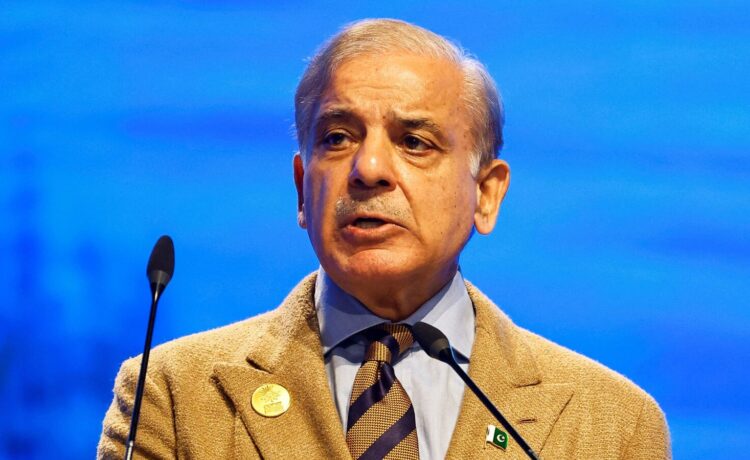Pakistan’s newly elected Prime Minister Shehbaz Sharif picked a former banker from JPMorgan Chase & Co. as finance minister to help bolster the cash-strapped economy after a contentious election.
Muhammad Aurangzeb, 59, was appointed to the position, the Finance Ministry confirmed in a post on X. He earlier stepped down as chief executive officer of Pakistan’s biggest bank by deposits — Habib Bank Ltd.
The new finance minister’s most pressing challenge would be to secure at least $6 billion in loans from the International Monetary Fund to tide over the economy, which has been battered by surging inflation and slowing growth. Shehbaz Sharif has said Pakistan needs to secure a new loan as a priority.
The nation also needs to unlock the final $1.1 billion tranche from an IMF program that ends next month. Some $1 billion of Pakistan’s dollar-denominated bonds mature in April as well.
Aurangzeb was chosen over other possible candidates, including longtime Sharif ally Ishaq Dar and ex-central bank governor Shamshad Akhtar. His appointment suggests Sharif wants technocrats to help fix the country, which narrowly avoided a sovereign default last year.
“We have to carry out a surgical operation as antibiotics will not work at all,” Sharif said after the cabinet appointments. “There will be a deep surgery so that the roots of this country can deepen. Whenever there is a will, there is a way and it is never too late.”
A former CEO with JP Morgan’s Global Corporate Bank in Singapore, Aurangzeb is a seasoned banker who has headed Habib Bank for the past six years. He said last year any new government would have to address structural benchmarks set by the IMF to move the economy to growth mode.
Still, Sharif has the experience of closing a deal with the multilateral lender as prime minister. He personally negotiated with IMF Managing Director Kristalina Georgieva, sidelining the former finance minister Ishaq Dar who stalled on some reforms, according to a report from the United States Institute of Peace published after the elections.
Bloomberg Economics analyst Ankur Shukla said Sharif has a track record of carrying out reforms and his return as prime minister for a second term increases the chances of securing a new IMF package. His party’s election manifesto — which includes cutting the fiscal deficit and fixing the current account balance — is aligned with the IMF targets or, in some cases, even more ambitious, Shukla wrote in a report.
IMF aid will help in retaining support from creditor nations such as Saudi Arabia and the United Arab Emirates, which poured billions of dollars in financing.
Pakistan has rewarded investors who still ploughed in funds. The nation’s dollar bonds handed them a gain of almost 25% this year, the biggest in Asia. The currency is up about 1%.
Despite the new appointment, some observers remain pessimistic.
“Even if you bring legendary people like Larry Summers or Rubin, they can’t do anything,” said Nadeem Ul Haque, a former economist with the IMF. “We have deep, deep problems in the economy and society that need to be fixed. Changing people or the IMF program is just window dressing.”
Unlock a world of Benefits! From insightful newsletters to real-time stock tracking, breaking news and a personalized newsfeed – it’s all here, just a click away! Login Now!
This story has been published from a wire agency feed without modifications to the text. Only the headline has been changed.

















